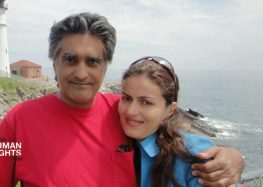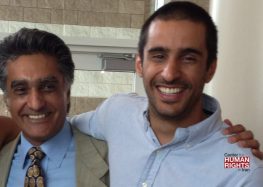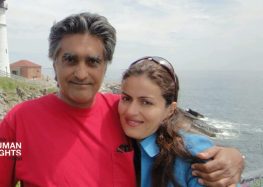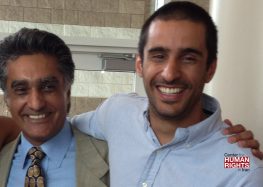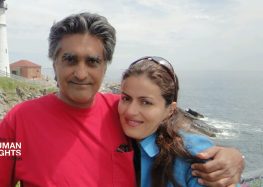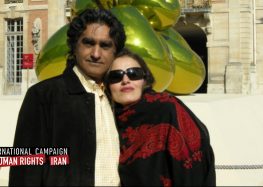Former Italian Ambassador to Iran Denounces Detention of Iranian-American Dual National and Wife
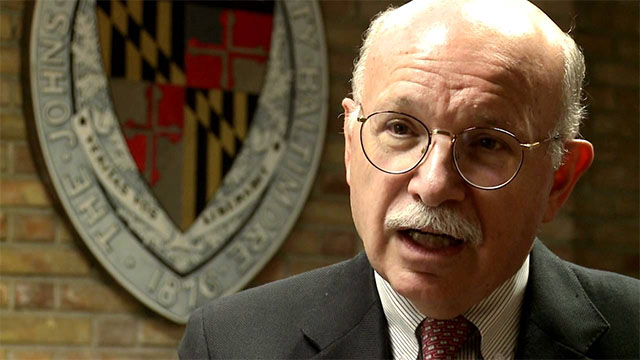
“Much more is at stake than the personal freedom of two outstanding, patriotic Iranian citizens,” says Ambassador
In a public letter the former Italian Ambassador to Iran, Roberto Toscano, condemned the arrest and now three-month detention of dual Iranian-American citizen Karan Vafadari and his wife, Afarin Niasari, whom he called among “the most dignified people I have met during the five years I spent as Italy’s ambassador to Tehran.”
Ambassador Toscano, in an open letter shared with the International Campaign for Human Rights in Iran and published here for the first time, wrote that it was “impossible” for him to remain silent after learning of the arrests.
The couple, art gallery owners in Tehran and prominent in the Iranian artistic and cultural community, have been held at Evin Prison, without access to counsel, ever since their arrest in July 2016 by agents of Iran’s Revolutionary Guards Intelligence Organization—allegedly for “engaging in corruption and depravity” and serving alcohol at their home.
“Having been a witness and a participant of this “corruption” I believe I have the duty to speak up. Karam Vafadari and Afarin Niasari are among the most refined, the most exquisite, the most dignified people I have met during the five years I spent as Italy’s ambassador to Tehran. And the home that I visited more than once was certainly not a den of vice and debauchery,” he said.
Ambassador Toscano continued, “It is thanks to people like them that foreign diplomats posted in Iran have had the opportunity of gaining an appreciation of Iran’s culture, both traditional and contemporary, and of Iranian society.”
The Ambassador directly refuted the Iranian authorities’ justification for the detention of Karan Vafadari and his wife Afarin Niasari: “One has to be truly gullible and the easy victim of propaganda in order to believe that they were detained because they were offering alcoholic drinks to their guests – especially in a capital where most of allegedly pious officials are notoriously not averse to drink.”
He continued, “The reason must be a different one…political blackmail toward the US (of which they are also citizens), envy for their success, intimidation toward the Zoroastrian community, desire to grab their properties, [and] repression of contemporary art (the reported destruction of works of art at their home would point in this direction).”
At the time of the couple’s arrest, agents went to their home and their gallery, confiscating works of art and destroying others.
Ambassador Toscano also commented on the wider implications of the continuing string of arrests of dual nationals in Iran: “Their detention is not only despicable because of its blatant injustice, but also because it will work as a further obstacle to the task of integrating Iran in the international community through a policy of dignity and proud independence, and at the same time dialogue and mutual respect.”
He added, “Politically, one can only interpret it as a provocation, not different from the detention and trial of Siamak and Baquer Namazi and of other dual nationals…Much more is at stake than the personal freedom of two outstanding, patriotic Iranian citizens.”
The complete letter by Roberto Toscano, Italian Ambassador to Iran (2003-2008), is reprinted here:
***
Ambassadors, including retired ambassadors, are supposed to be reserved, prudent, and to avoid going public, especially on themes that could be considered politically delicate. This time, however, it is impossible for me to keep my mouth shut according to the best traditions of my former profession.
I just read the news of the detention, three months ago, of Karan Vafadari and his wife Afarin Niasari. Apparently they are accused of corruption and in particular of organizing in their home parties with foreign diplomats at which alcohol was served.
Having been a witness and a participant of this “corruption” I believe I have the duty to speak up. Karan Vafadari and Afarin Niasari are among the most refined, the most exquisite, the most dignified people I have met during the five years I spent as Italy’s ambassador to Tehran. And the home that I visited more than once was certainly not a den of vice and debauchery.
It is thanks to people like them that foreign diplomats posted in Iran have had the opportunity of gaining an appreciation of Iran’s culture, both traditional and contemporary, and of Iranian society. A society that – in all social classes and from cities to villages – is extraordinarily educated, open to the world, friendly to foreigners.
One has to be truly gullible and the easy victim of propaganda in order to believe that they were detained because they were offering alcoholic drinks to their guests – especially in a capital where most of allegedly pious officials are notoriously not averse to drink. The reason must be a different one, much darker and totally deprived even of the pseudo justification of religious orthodoxy: political blackmail toward the US (of which they are also citizens), envy for their success, intimidation toward the Zoroastrian community, desire to grab their properties, repression of contemporary art (the reported destruction of works of art at their home would point in this direction).
Their detention is not only despicable because of its blatant injustice, but also because it will work as a further obstacle to the task of integrating Iran in the international community through a policy of dignity and proud independence, and at the same time dialogue and mutual respect.
Politically, one can only interpret it as a provocation, not different from the detention and trial of Siamak and Baquer Namazi and of other dual nationals. A provocation that is particularly dangerous and unpatriotic at a moment when the election of Donald Trump justifies the worst fears of a renewal of the tensions that had seemed to abate with the conclusion of the nuclear deal – a major diplomatic feat for which those who dread further conflict in the Middle East should be grateful both to President Obama and to President Rouhani.
Much more is at stake than the personal freedom of two outstanding, patriotic Iranian citizens.
*Roberto Toscano, Italian Ambassador to Iran (2003-2008)

